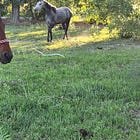This is not medical advice.

This is part 1, part 2 will be titled, “After rotator cuff surgery: The first 2 months.”
Firstly, you need to be seen by someone in person. This is just what I’ve witnessed other people dealing with. My impression is that most people don’t understand/appreciate, or haven’t really been told what to expect.
This question usually includes rotator cuff tears and total shoulder replacements.
I am not suggesting people don’t have this surgery. I am just presenting some ideas on decision making.
Surgical considerations
Should you have shoulder surgery? That is is difficult decision. Obviously your surgeon and or PT’s have given you their opinion. It can be a painful recovery. Some people feel much better within 2 weeks. Those people probably had a very unstable shoulder before surgery.
Let’s assume you’ve tried therapy first for 1-2 months, and have not made enough progress at decreasing your pain. These are important questions to ask yourself.
Do you have pain all day?
Are you able to sleep at night?
Can you do the things you want to do?
Having pain most of the night and not sleeping is usually a push towards surgery. In those cases, your injury is preventing you from carrying on with your life.
I don’t see every case be happy and successful, and that is not just the surgeon’s fault.
Movement expectations after surgery
Most rotator cuff repairs I have seen require the patient to NOT MOVE their arm on their own for the first month. Many people going into surgery are unaware of this before surgery. People don’t, or are unable, to prepare for enough time off from work or other chores.
Many people don’t understand what don’t move or don’t use the arm means. Most are given a huge brace to wear, to help support the shoulder, but also prevent movement.
The surgeon stitched some frayed fibers back together. It has to heal, and you can’t be pulling against those tissues.
I’ve met many people, especially ranchers, that go back to fixing fence or vehicles, in that first month, and screw it up all over again. Of course, they are tough and stubborn, and laugh it off, so it really doesn’t matter. Not saying I don’t care, but as they will tell you themselves, you can only lead a horse to water.
Our job
To me, our most important job in that first month is to gently move your arm for you, while you are lying on your back. It is difficult to relax, as it is painful, and you have to trust the person holding your arm. That doesn’t mean blindly trust anyone. I mean find someone you trust.
You can always get stronger later…
If you are a regular reader, you know I love strengthening, and think that it is the long term answer and prevention to most problems.
But in this case, the passive range of motion and stretching, and measuring, are critical in the first month. You must make gradual and gentle range of motion progress, or risk getting stuck. You won’t have a functional, and pain free shoulder if you don’t restore range of motion.
In some cases, you may avoid having surgery, however that is also a difficult route to determine.
How I fixed my rotator cuff tear and avoided surgery
This is not medical advice. That title is somewhat of a misnomer. I didn’t “fix” my rotator cuff muscle, I “rehabbed” my shoulder enough that my other intact cuff muscles compensate, and I have no pain. Those of you who know me personally, I am not a natural smiler for pictures. One minute with my interminably smart assed wife fixes that pretty quick. S…





